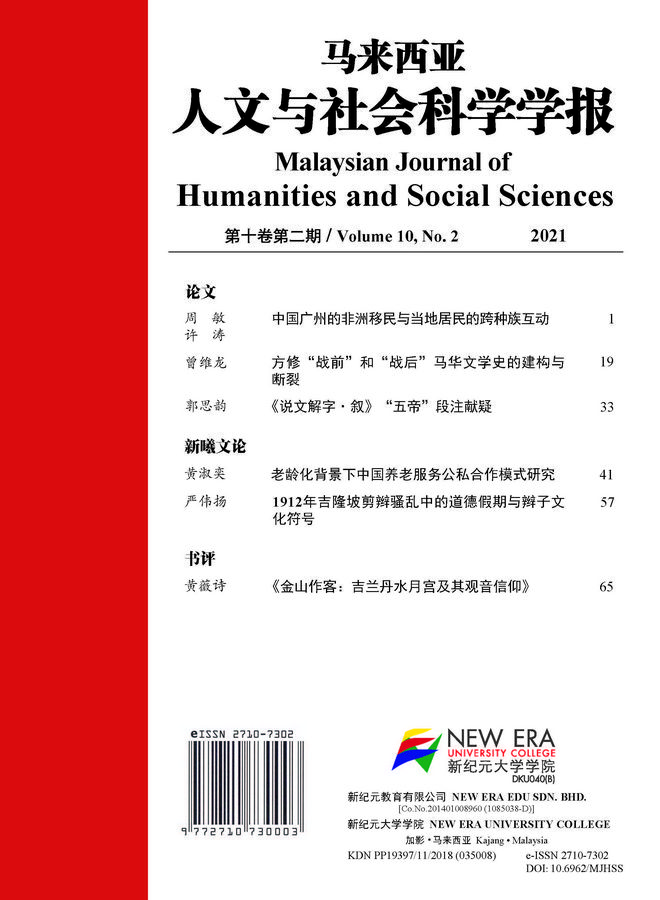1912年吉隆坡剪辫骚乱中的道德假期与辫子文化符号 The Moral Holiday and Queue Symbols in the 1912 Kuala Lumpur Tauchang Riots
Keywords:
剪辫(头鬃)、华人绅商、英国殖民政府, Queue (Tauchang) cutting, Chinese gentry merchants, British colonial administrationAbstract
发生在1912年吉隆坡的剪辫子骚乱,在本地华人研究中被烟埋了百余年。辫子剃留之间,看似毫不起眼的一件小事,却是本地华人在20世纪初,身份认同转向的一个过程。从中还可以窥视当时华人中下层的劳动阶级,在英属马来亚生活形态。不同籍贯和帮群的绅商们,如何跨越方言鸿沟,在冲突与磨合之间,尝试不假外力以图和谐处理族群内部事务。英殖民政府的官僚们和英籍居民,身居马来联邦心脏之地,却以华人为主体居民的吉隆坡,面对这次骚乱,他们将是如何地通过统治权力,以法律和秩序(Law and Order)施加这些主体居民。新国民身份不是在简单的剪掉辫子后,就能成就新国民的思维,更不能说革命因此改变了近世中华民族的命运。但是,剪除辫子无疑是时代转换的标志,这意味着一个旧时代结束,另一个新时代的开始。
The queue (tauchang) cutting riots in Kuala Lumpur in 1912 has been buried for more than a hundred years within local Chinese studies. The seemingly inconspicuous minor event regarding queue shaving was a process that altered the local Chinese identity in the early 20th century. From this research, we can peek into the lives of the Chinese lower working class living in British Malaya at the time. This paper will also discuss the Chinese gentry merchants from different clans across dialect groups who attempted to resolve the riots harmoniously. Moreover, how the British colonial government bureaucrats and British residents face the riots while living in the heart of the Federated Malay States in Kuala Lumpur with mainly Chinese inhabitants will be examined as well. More importantly, how the British imposed law and order through the local ruling powers on these rioting Chinese residents will also be investigated. The new national identity does not begin with cutting off the queue for the realization of the new national consciousness, nor was it a revolution that changed the destiny of the Chinese nation in modern times. However, cutting off the queue was undoubtedly a sign of the changing times, which signified the end of the old era and the beginning of the new. This was what happened in China, and the same was true of the Chinese in British Malaya.




